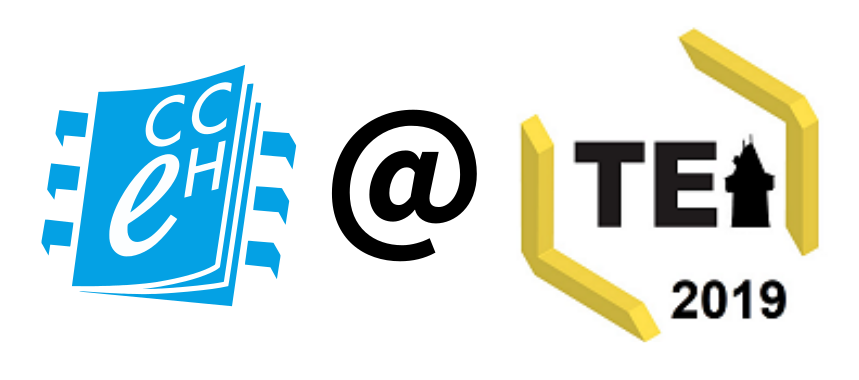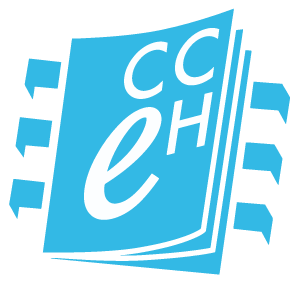Servus! Greetings from the 2019 edition of the annual TEI international conference, hosted this year by the University of Graz, Austria.

The TEI Conference is where every year hundreds of scholars, practitioners and enthusiasts gather together to talk about the Text Encoding Initiative and discuss all sorts of of ideas related to encoding text and human knowledge.
The Cologne Center for eHumanities is a huge fan of the TEI and has used it in countless projects. At this year’s TEI-C, we will be giving talks on a variety of subjects, ranging from reports of our practical experiences in applying the TEI to highly theoretical discussions.
Here is the list of our presentations at the TEI Conference 2019. Are you around? Let’s meet!
See you all in Graz. Seg mer ins in Graz!
Day 1: Wednesday, 18th September 2019
P. Dängeli [1,2], C. Forney [2]. Referencing annotations as a core concept of the hallerNet edition and research platform. This talk reports on the (re-)edition in digital form of existing editions of Haller’s correspondence and their integration in the hallerNet platform. The main point of the presentation is showing how annotations went from footnotes attached to a specific position on a printed page to annotated references targeting first-class digital objects in a database, paving the way for many different kinds of computer-assisted analysis. [Abstract]
A. Rojas Castro [1,12]. Modeling FRBR Entities and their Relationships with TEI: A Look at HallerNet Bibliographic Descriptions. An in-depth discussion of how the FRBR data model has been implemented in TEI markup and then adopted in hallerNet to represent a complex set of bibliographic records, as well as their relationships. [Abstract]
E. Cugliana [1,3], G. Barabucci [1]. A sign of the times: medieval punctuation, its encoding and its rendition in modern times. A successful experiment in applying the principles of reproducible XML data curation with functional XProc pipelines to Elisa Cugliana’s digital scholarly edition of a previously unedited medieval German translation of Marco Polo’s Devisement dou Monde, part of her PhD on the digital representation of the analogic continuum spanning between facsimile and interpretative transcription. [Abstract]
Day 2: Thursday, 19th September 2019
M. Gimena [4], R. Simon [5], E. Barker [6], L. Isaksen [7], R. Kahn [8], V. Vitale [9], A. Rojas Castro [1,12], H. Cayless [10]. Recogito: from Semantic Annotation to Digital Scholarly Edition. A report on how the TEI model has been integrated in the annotation tool Recogito, partner of the Pelagios network and best digital humanities tool of 2018. Now TEI documents can be imported and exported as part of a general workflow conceived to create “minimal” digital editions. [Abstract]
Day 3: Friday, 20th September 2019
F. Mondaca [1], P. Schildkamp [13], F. Rau [14], J. Bigalke [1]. Introducing an Open, Dynamic and Efficient Lexical Data Access for TEI-encoded Dictionaries on the Internet. The first public appearance of Kosh, a framework for creating and maintaining APIs for XML-encoded dictionaries, part of the Cologne South Asian Languages and Texts (C-SALT). [Abstract]
R. Bleier [11], F. Fischer [1], T. Gengnagel [1], H. W. Klug [11], P. Sahle [1], C. Steiner [11], S. M. Winslow [11], A. Worm [11]. Graphs – charters – recipes: challenges of modelling medieval genres with the TEI. An open panel where the speakers will discuss with the public the pros and cons of different approaches to modelling medieval texts and images. [Abstract]
- Cologne Center for eHumanities, University of Cologne, Germany
- Institute of History, University of Bern, Switzerland
- Università Ca’ Foscari Venezia, Italy
- Consejo Nacional de Investigaciones Científicas y Técnicas, Argentina
- AIT Austrian Institute of Technology, Austria
- The Open University, UK
- University of Exeter, UK
- Alexander von Humboldt Institut für Internet und Gesellschaft HIIG, Germany
- University of London, UK
- Duke University, USA
- University of Graz, Austria
- Berlin-Brandenburg Academy of Sciences and Humanities, Germany
- Data Center for the Humanities, University of Cologne, Germany
- Department of Linguistics, University of Cologne, Germany
